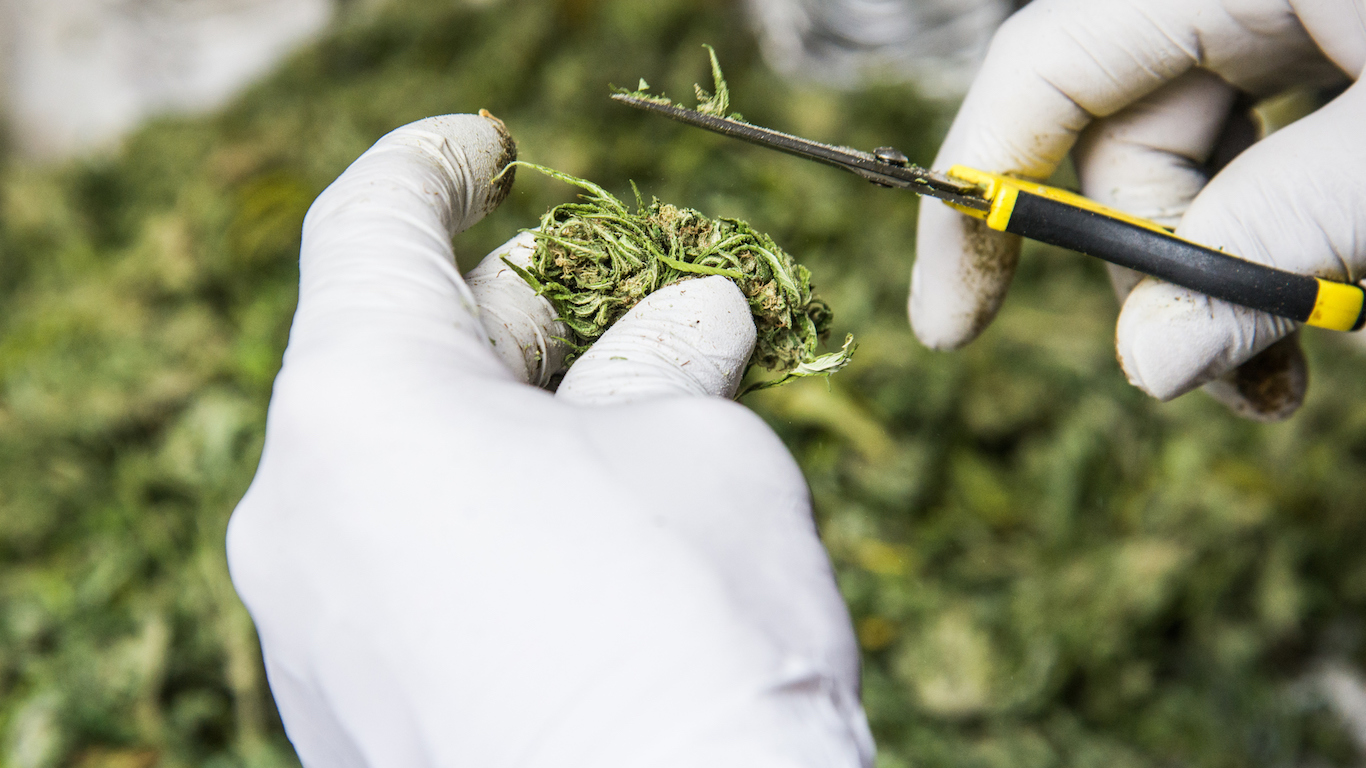
It has been a rough time for the companies that stand to benefit from the waves of cannabis legalization efforts. Some companies focus their operations on medical marijuana and some more on recreational use. Literally billions of dollars in potential revenues are up for grabs in America. The legalized cannabis industry has many dark sides as well, and the vast losses that were seen by cannabis stock investors in 2019 alone should show just how risky this industry is.
Canopy Growth Corp. (NYSE: CGC) shares surged on Tuesday after BMO Capital Markets raised its formal stock rating to Outperform from Market Perform. The firm also raised its Canadian target price to C$40 from C$25, which implied upside of about 41% from the prior closing price of C$28.39. Canopy Growth, like many of the cannabis stocks, is based in Canada but its U.S.-listed shares are more actively traded. The United States is an exponentially larger market, so it makes sense that the stock would be more active here.
As for those U.S.-listed shares, the stock was up by over 7% to $23.15 on Tuesday morning. The 52-week range is $13.81 to $52.74. Even with an $8 billion or so market cap today, Canopy Growth’s losses have been staggering for some investors, while others have seen their stop-loss parameters hit time after time.
Issuing an analyst upgrade at the end of January comes with some risks. The recent volatility in the markets is one risk, but now the shares are back to about 10% higher so far in 2020. The analyst call is also ahead of Canopy Growth’s fiscal third-quarter financial results, expected on Friday, February 14.
BMO analyst Tammy Chen in this upgrade cited the potential for gains ahead of the earnings report. She raised her expectations for third-quarter revenues to C$108 from C$102. One drag was that Canopy Growth was producing too much of the wrong products (softgel capsules). Chen believes that the company’s shift toward better meeting the demand of consumers with better value-priced products is a right step.
The BMO report also noted that, while Canopy Growth is not the only player with value pricing, the stock’s current level offers a better relative return profile, considering that other rivals are likely to require additional financing. Chen’s take is that even a modest upside to the earnings report could further spur an investor sentiment shift toward the upside.
One issue that has brought some rekindled confidence to Canopy Growth, on top of the Constellation Brands multibillion-dollar investment, is that David Klein left Constellation as its chief financial officer to become Canopy’s chief executive officer. He has only been in that role for two weeks, but many reports had indicated that perhaps this was grooming Canopy Growth to be acquired. Constellation owns about 35% of Canopy Growth.
Since the start of 2019, Canopy Growth had to delay the launch of its cannabis beverage due to scaling issues at the quality it desires. Health Canada issued the license to Canopy Growth in late November of 2019. When the announcement was made in December that Klein would leave Constellation to join Canopy Growth, he commented:
Canopy Growth sits at the forefront of one of the most exciting new market opportunities in our lifetime. Thanks to the efforts of Mark and the entire team at Canopy Growth, no company is better positioned to win in the emerging cannabis market. I look forward to working with the team to build on the foundation that has been laid, to develop brands that strongly resonate with consumers, and to capture the market opportunity before us. Together we will drive sustainable, industry-leading growth that benefits employees, shareholders and the communities in which we operate.
The U.S.-listed shares of Canopy growth were last seen trading at $23.15 on Tuesday, in a 52-week range of $13.81 to $52.74.
Are You Ahead, or Behind on Retirement?
If you’re one of the over 4 Million Americans set to retire this year, you may want to pay attention. Many people have worked their whole lives preparing to retire without ever knowing the answer to the most important question: am I ahead, or behind on my goals?
Don’t make the same mistake. It’s an easy question to answer. A quick conversation with a financial advisor can help you unpack your savings, spending, and goals for your money. With Zoe Financial’s free matching tool, you can connect with trusted financial advisors in minutes.
Why wait? Click here to get started today!
Thank you for reading! Have some feedback for us?
Contact the 24/7 Wall St. editorial team.
 24/7 Wall St.
24/7 Wall St.

